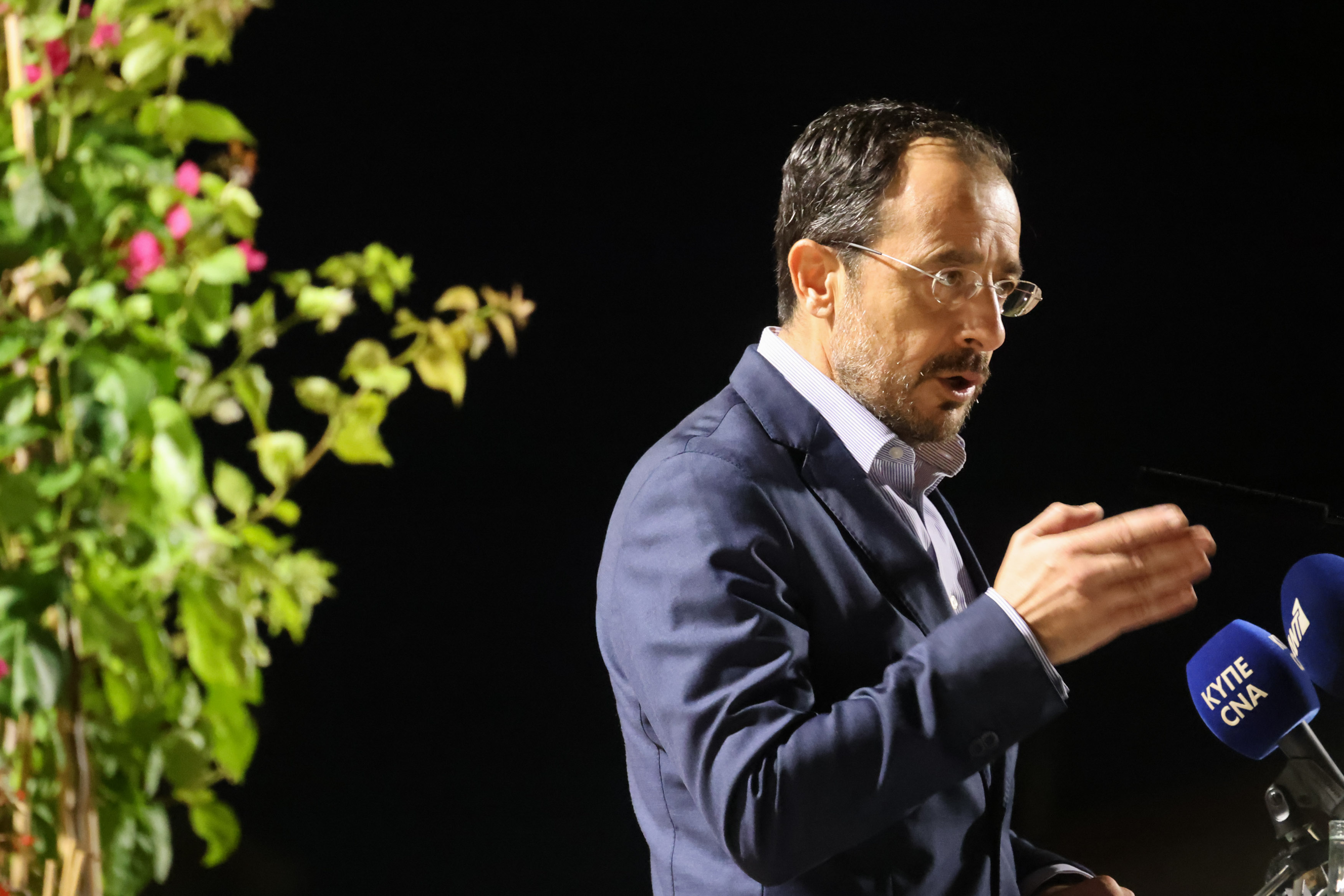President Nikos Christodoulides on Friday night promised that the new road which will link Paphos and Polis Chrysochous will have four lanes when construction is complete.
“Our government … has decided and will proceed with the construction of a four-lane motorway, while our planning also includes the creation of an additional access road at Mesogi, in addition to the existing one at Ayia Marinouda,” he said during a visit to Polis Chrysochous.
He added that the road will be “a regular motorway, as exists throughout free Cyprus”, and that it will “substantially contribute to the exploitation of the unlimited potential of this beautiful region”.
The project, he said, will be complete between 2030 and 2032, “depending on the challenges which may arise during the building of the junction for Mesogi”.
He pointed out that the government had last month announced a new tender for the first phase of the road, which will connect Ayia Marinouda, just outside Paphos, and the village of Stroumbi, which is located roughly halfway between the road’s two endpoints.
To this end, he said a tender for the second phase, connecting Stroumbi with Polis Chrysochous, will be announced within the first three months of next year.
“These are the government’s clear timetables,” he said, before stressing that the government “has the political courage and determination to improve and, if necessary, terminate problematic contracts for projects which have been stalled due to additional financial burdens, unjustified demands, and unrealistic timetables”.
The tender which was put out last month said that the road is to be built with two lanes of traffic and one crawler lane “where required, with the prospect of construction of the other two lanes in a future phase”.
As such, the road will not, at least at first, be a dual carriageway, though Christodoulides’ statements on Friday suggest that the “future phase” is already a certainty.
Last week, the estimated cost of the road’s construction was revised up to a total of €90.2 million plus value added tax, with original estimates four years ago having placed the cost at just shy of €73m plus VAT.
The public works department had explained that when a contract for the project’s completion was initially signed between the government of the day and Greek contractor Intrakat in 2021, it was valued at just shy of €73m plus VAT.
Since then, it said, in light of the tearing up of the government’s contract with Intrakat – now known as Aktor – last year, and increases in the cost of construction materials in recent years, that estimate has been revised up to the current figure.
It also passed comment on the contract with Intrakat, saying that “intensive efforts were made to overcome any obstacles, problems, and respond to the contractor’s requirements”, but that Intrakat’s “demand for additional costs and time to complete the project” were deemed to be “extremely problematic and excessive”.
Of Intrakat’s demands for more funding and time to complete the project, it said that in April last year, “the contractor’s demands amounted to €30m and a 34-month extension”, but that by October, this had risen to €34m and a 59-month extension.
“Considering that these demands were made with the project only 21.1 per cent complete, it can be reasonably concluded that there would be additional demands and extensions before the project was complete,” it said.
That announcement came after Aktor had won a stay from the tenders review authority, which had accepted the company’s request to suspend a new tender process for the road until its appeal against the cancellation of the initial contract.
The company is seeking €35m in damages for the contract’s termination.
Transport Minister Alexis Vafeades had said last week that he expects the tenders review authority to reach a decision on the matter in early October.
“We expect that the tenders review authority will make a decision in early October so that we can proceed with the process. We will do what is necessary by implementing cabinet decisions and proceedings with a new tendering process for the project,” he said.






Click here to change your cookie preferences